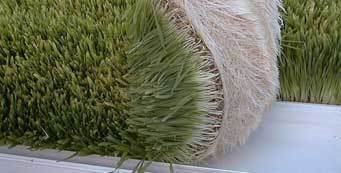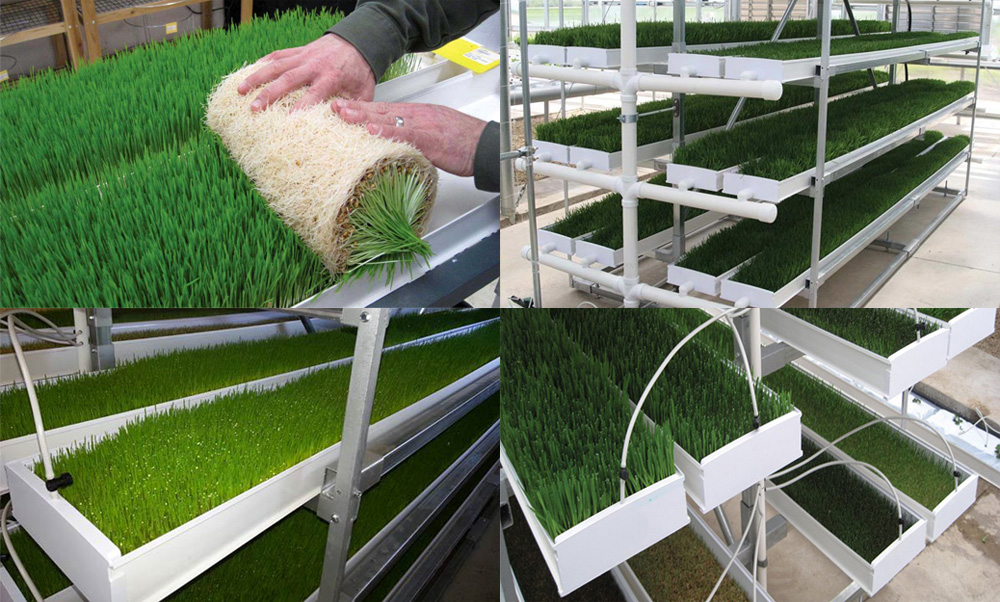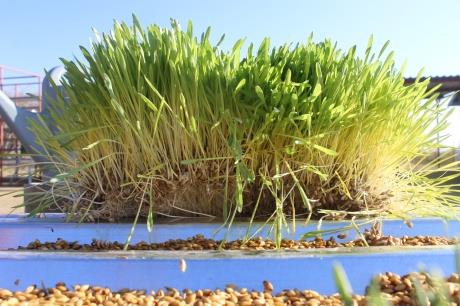Hydroponic Fodder Systems for Horses: A Comprehensive Guide

Hydroponic fodder systems are revolutionizing the way horse owners and equine facilities provide fresh, nutritious feed. This blog article explores the benefits, setup, maintenance, and practical considerations of hydroponic fodder systems specifically designed for horses.
What is Hydroponic Fodder?

Hydroponic fodder refers to sprouted grains or seeds grown in a controlled, soil-free environment using water and nutrient solutions. This method produces fresh, green fodder within 7-10 days, offering a sustainable and efficient alternative to traditional hay or pasture.
Benefits of Hydroponic Fodder for Horses
- Nutritional Value: Hydroponic fodder is rich in vitamins, minerals, and enzymes, promoting better digestion and overall health.
- Year-Round Availability: Unlike seasonal pasture, hydroponic systems provide fresh fodder regardless of weather or climate.
- Water Efficiency: These systems use up to 90% less water than conventional fodder production.
- Space Saving: Ideal for urban or limited-space environments.
- Reduced Feed Costs: Lower dependency on purchased hay and grains.
Setting Up a Hydroponic Fodder System
| Step | Description |
|---|---|
| 1 | Select Seeds: Barley, oats, or wheat are commonly used for horse fodder. |
| 2 | Prepare the System: Choose trays, racks, and a water delivery system suitable for your space. |
| 3 | Soak Seeds: Soak seeds for 12-24 hours to initiate germination. |
| 4 | Sprout Seeds: Spread seeds evenly in trays and maintain moisture with regular watering. |
| 5 | Harvest: After 7-10 days, the fodder is ready to feed.
Maintenance Tips
- Keep the growing area clean to prevent mold and bacterial growth.
- Monitor moisture levels carefully; too much water can cause rot.
- Ensure adequate ventilation and light.
- Rotate seed batches to maintain freshness.
Feeding Hydroponic Fodder to Horses
- Introduce gradually to avoid digestive upset.
- Use as a supplement to regular feed, not a complete replacement.
- Monitor horses for any adverse reactions.
Frequently Asked Questions (FAQ)
Q1: Can all horse breeds benefit from hydroponic fodder?
A1: Yes, hydroponic fodder is generally safe and beneficial for all breeds, but individual dietary needs should be considered.
Q2: How much fodder does a horse consume daily?
A2: Typically, a horse consumes about 1.5-2% of its body weight in dry matter daily; hydroponic fodder can supplement this amount.
Q3: Is hydroponic fodder more expensive than traditional feed?
A3: Initial setup costs can be higher, but long-term savings on feed and water make it cost-effective.
By adopting hydroponic fodder systems, horse owners can ensure a consistent, nutritious, and sustainable feed source that supports equine health and reduces environmental impact.
